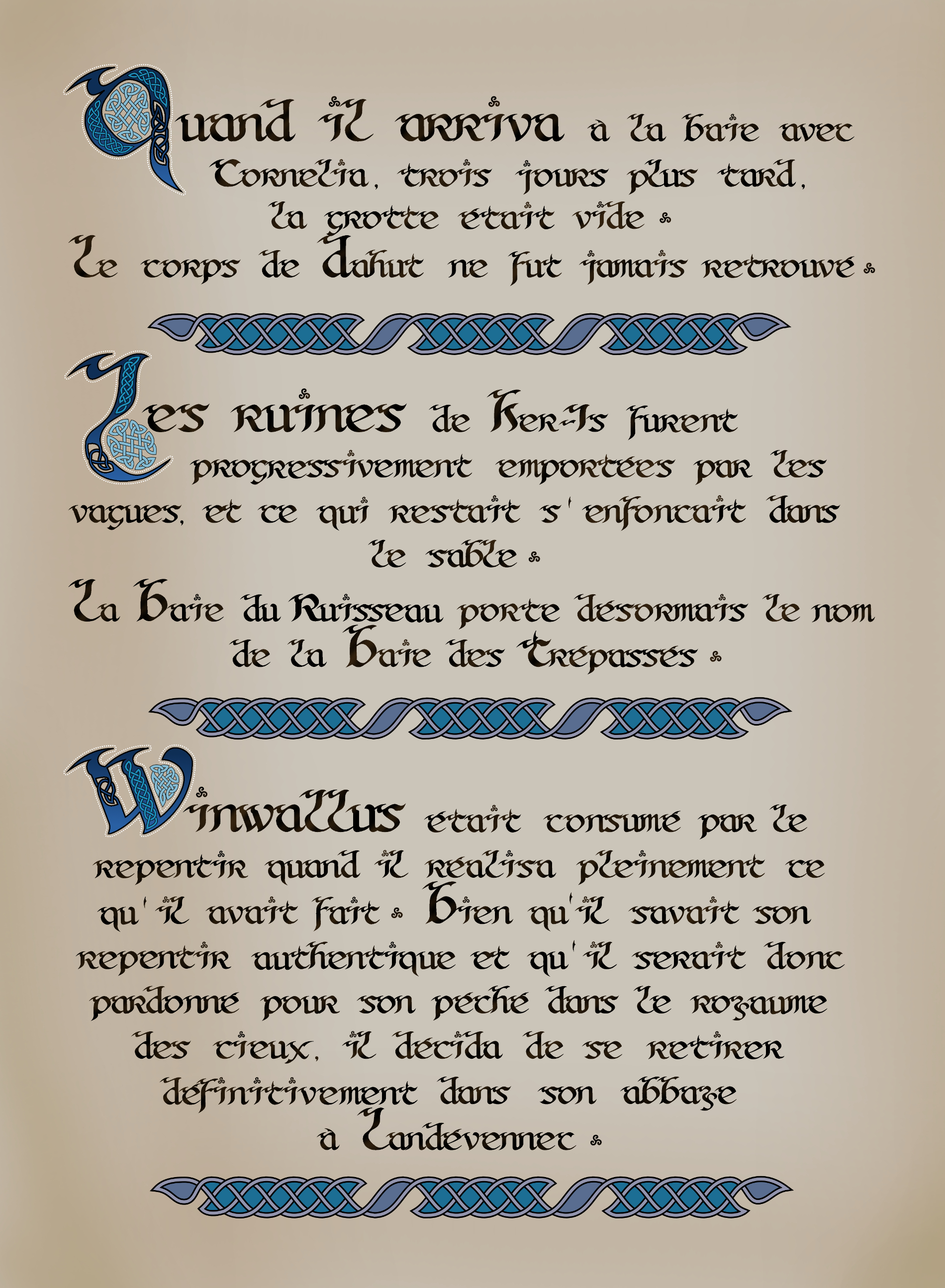fol. 35r
Quand il arriva à la baie avec Cornelia, trois jours plus tard, la grotte était vide.
Le corps de Dahut ne fut jamais retrouvé.
Les ruines de Ker-Is furent progressivement emportées par les vagues, et ce qui restait s'enfoncait dans le sable.
La Baie du Ruisseau porte désormais le nom de la Baie des Trépassés.(1)
Winwallus était consumé par le repentir quand il réalisa pleinement ce qu'il avait fait. Bien qu'il savait son repentir authentique et qu'il serait donc pardonné pour son péché dans le royaume des cieux, il décida de se retirer définitivement dans son abbaye à Landévennec.
(1) Le nom breton "Bae (ou Boë) an Anaon" signifie "la Baie des Ames en Peine". Selon une légende, des cadavres de naufragés s'y échouaient fréquemment à cause des courants de marée et des vents d'ouest.
Selon une autre légende c'est l'endroit où les trépassés, dans la Barque de la Nuit, attendirent un marin sans méfiance pour les naviguer jusqu'aux 'Iles Bienheureuses' pour les y déposer.
Mais plus probablement (et plus prosaïque...) le nom breton est simplement une transformation de "Bae An Aon", la "baie du ruisseau".
fol. 35r
When he arrived at the bay with Cornelia, three days later, the cave was empty.
Dahut's body was never found.
The ruins of Ker-Is were gradually washed away by the waves, and what remained sank into the sand.
The "Bay of the Little Stream" now bears the name of "the Bay of the Dead"(1).
Winwallus was consumed with repentance when he fully realized what he had done. Although he knew his repentance genuine, and that he would therefore be forgiven for his sin in the kingdom of heaven, he decided to retire definitively to his abbey in Landévennec.
(1) The Breton name "Bae (or Boë) an Anaon" means "the Bay of Souls in Pain". According to a legend, the corpses of castaways often ran aground there because of tidal currents and westerly winds.
According to another legend this is the place where the deceased, in the Boat of Night, waited for an unsuspecting sailor to sail them to the 'Blessed Islands' to drop them off.
But more probably (and more prosaic ...) the Breton name is simply a transformation of "Bae An Aon", the "bay of the stream".
Cliquez l'image pour une meilleure qualité.
Click on the picture for a better quality.

